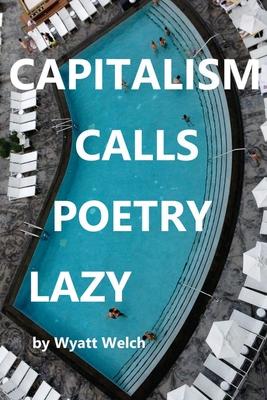Welch engages with the edges of the United States in these biographic poems about their kidnapping, their difficulties as a gay/trans individual, and their alliance with Witchcraft. Among unstable poems and juxtaposition, Welch searches for the poetic body just beyond the physical one, "That I am challenged to embody my own Nature, othered by forces outside myself, to reassert a peace, my peace, that was dirtied for the benefit of privileging males is an undertaking I revisit and resent daily. This act of returning to myself, by rejecting the world, is dark and is the source of my power as a Witch. These practices speak throughout my poetry."
As the title nails down, Welch also impugns upon the intentions that capitalism harbors against us, the living. "For Capitalism to work, it teaches us, on many levels, to disconnect from our natural empathy, from the homeless, from the countries we're calmly bombing, and from the other beings sharing our world. The narrative of laziness turns connection to cruelty, and poetry exposes such fictions. Poetry furthers our empathy with one another, including our empathy with everyday objects. Poetry isn't lazy-it never rests."
